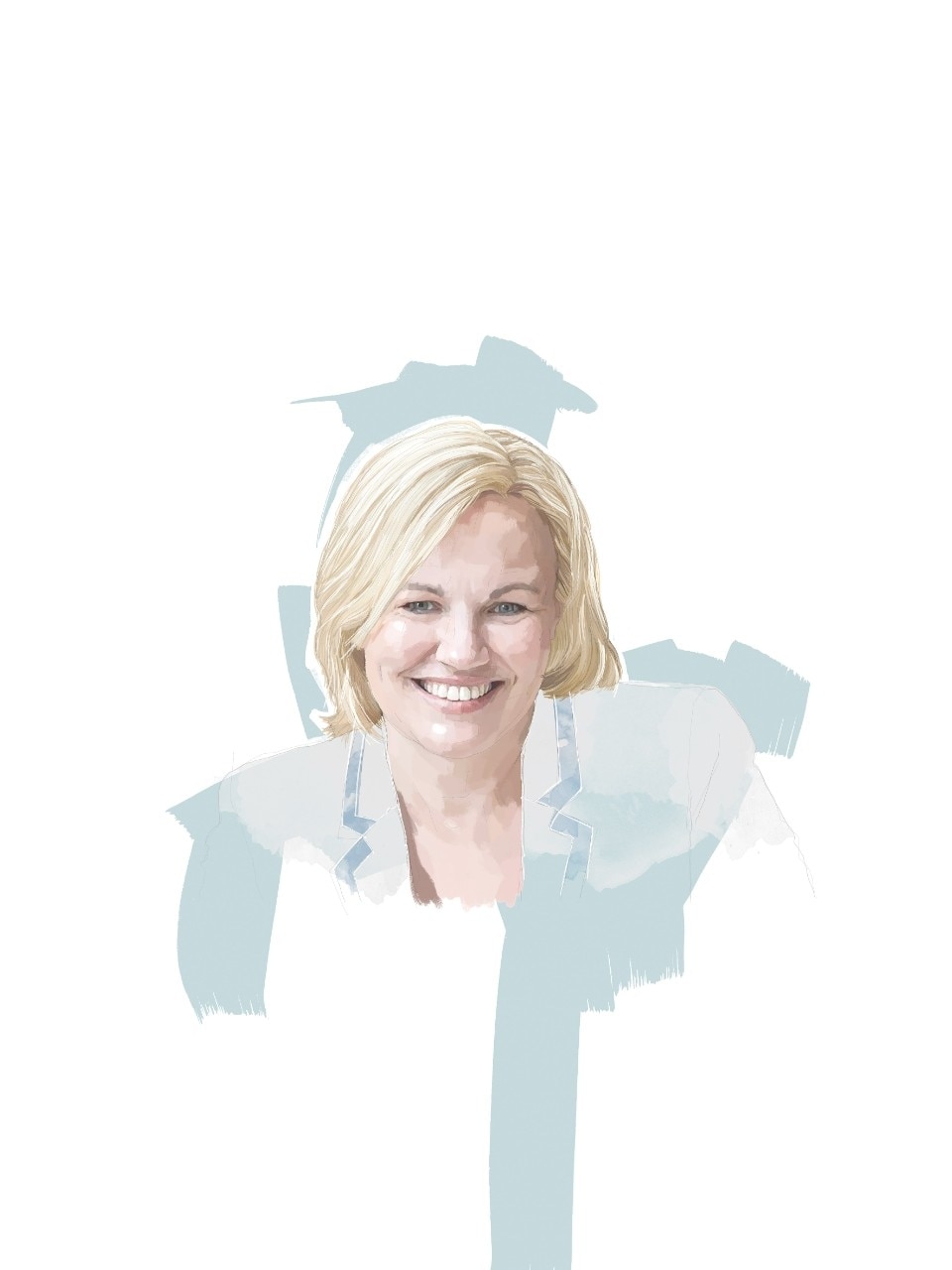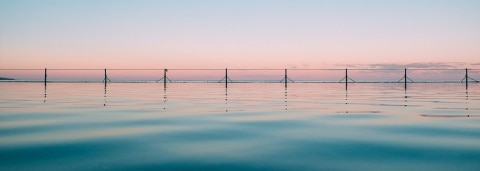Why Emotional Intelligence is the Key to Success for Philippa Harrison

She loves positivity and believes EQ is everything but the Tourism Australia MD thrives on discomfort and has a knack for disagreeing with a smile on her face.
Current role: Managing director, Tourism Australia
Tenure: Two-and-a-half years
Age: 52
Previous roles: Executive general manager international, Tourism Australia; general manager sales and marketing, Rawson Group; company secretary, Luxury Lodges of Australia; general manager, sales, Hamilton Island.
How do you define great leadership?
The most important thing is having really good EQ. You need to have a certain level of IQ to get to a position within an organisation but having good EQ is where you’re going to be a really, truly good leader.
What is it about EQ that people get wrong? Is the misconception that it’s about being “nice”?
People think it’s “super soft”. Being smart and understanding numbers in a business is really important but people are a crucial part of anything you do. Unless you can get them working in the same direction as you, you’re not going to succeed, even if you have the best understanding of numbers in the world.
You took over as MD in September 2019. Then we had the bushfires, followed by COVID-19. Have you had to change your leadership style?
I’ve found my style works well in this role in this moment. It’s not about being a perfect leader but being a very open, transparent and honest leader. If I went out there and tried to represent the situation as anything other than what it was, it wouldn’t have been received particularly well. The biggest change for me has been the level of communication that’s been needed over this period. In the beginning I felt quite uncomfortable with how much I was putting out there. I’ve had to pretty much treble what I was doing before. The other thing is learning how to not be too attached to an approach because we had to change it so many times [laughs].
Do you think travel will be different?
The drivers for travel aren’t going to change but people are going to be a lot more purposeful about the sorts of experiences they have and how they travel. We know there’s pent-up demand. There’s just a lot of friction in the way at the moment and those frictions have to be removed before people feel confident again.
When we last talked, we spoke about how safe Australia feels. Is that still a factor?
We do consumer research around brand health in Australia. For the first time in about five years, we’ve seen our brand metrics take an uptick. People know what we have to offer is safe but it’s also quality. So I think we’re going to be in a really good spot when we come out of this. There’s been a bit of chatter around fortress Australia but I think that will go away.
What about Chinese travellers?
Pre-COVID-19, China was our biggest market, spending $12 billion in 2019. I think the return from the China market is going to take longer. Firstly they’re still locked down so they’re probably not going to open until mid-year or maybe later. And I think they’re going to be a little bit reticent to travel.
SEE ALSO: 5 Things to Watch Right Now According to Attica's Ben Shewry
A lot of our success is predicated on the Chinese traveller, isn’t it?
There’s no denying they’re our largest market and there’s no-one just sitting there waiting to replace them. But we do have a balanced portfolio – we have 15 markets across the world that deliver about 80 per cent of our leisure business, including the United Kingdom, Europe, South-East Asia and Japan. We haven’t just put all our efforts into the China pot and that’s been really important.
We’ve heard a lot about the great skills shortage, with the tourism and hospitality industries wildly impacted. Is this a huge challenge?
Yep. After border closures, the skills shortage is our biggest issue as an industry. We have a job to do to convince Australians that travel and tourism is a great, legitimate career. But in the short-term, working holiday-makers are coming back. They’re a great market for us because not only do they do jobs in Australia, they spend. They’re one of our highest-value travellers.
How is the skills and capability shortage impacting Tourism Australia’s head office?
We’re somewhat lucky as an organisation. People are attracted to working for us because they feel passionate about brand Australia and feel really purposeful about representing their country well on the world stage. So we don’t have a lot of issues around attracting talent. But we’re not complacent – we’re looking at how we can remain an employer of choice. It’s one thing to attract people but keeping them for the long-term is a whole other thing.
Do you think employees will have more power than ever before?
For the time being, absolutely. There’s a lot of choice for employees out there. But for me, it distils down to two things. People want to do work they think is meaningful and makes a difference. And they want to be recognised for it. What that recognition looks like is different for different people.
It’s not just about salaries anymore, is it?
Salaries are still important but lifestyle is increasingly important. We all need more balance back in our lives. I’ve got two kids and this is the first time I’ve ever been able to be at the school gate. I think that’s great.
What’s your approach to hiring? How do you find the right people?
You have to find people who are going to fit your culture. I have one person in mind when I think about who I want to hire. I worked with her about 10 years ago. She was always 25 degrees and sunny; consistent in her mood and her output. I always hire for that sort of personality. You go through a lot of ups and downs when you work closely together and you need people who are going to be positive in their outlook.
There must have been times when it was really difficult. How have you kept everyone’s spirits up?
We’ve made sure that people have frequent breaks. You have to unplug and have an opportunity to re-energise. The other thing I think is super-important is not passing stress on. A lot of people feel better if they pass stress on but it’s important that you stop stress with you rather than handing it to somebody else.
I know you really dislike “group think” and I understand that you have learnt to “disagree well”. What does that mean?
How you disagree well is that you are not afraid to make a point that’s contrary but you also don’t make it personal. I was on the board of Luxury Lodges and the CEO always said I disagreed with a smile on my face. We did some work as a leadership team and put together a charter. One of the things on that charter was disagreeing well – putting our contrary viewpoints out there and not taking it personally. I really value diversity of opinion.
Have you ever been truly scared in your career?
No. Have I been nervous about an outcome? Fairly frequently, particularly at Tourism Australia when we launch a new campaign. We have 26 million people who have an opinion on how they’re represented. But equally, you can’t let it stop you because if we don’t do daring and creative work, we’re not going to cut through on the world stage. So you have to embrace it and go with it.
And you like being a little bit uncomfortable, don’t you?
I do. If you’re always in your comfort zone, you’re never going to progress or develop so I think it’s really important to be uncomfortable and I always seem to find myself in uncomfortable situations [laughs]. I left my last job because I felt like I had done everything… Even on a daily basis, I get nervous about things that are coming up but those nerves help me perform.
What’s the one piece of advice you’d give a brand-new CEO?
It wasn’t that long ago that I was a brand-new CEO. I think for me, it’s not being afraid to ask questions of things you don’t understand. The thing I’ve regretted is when I’ve had questions and not asked them and not got to the bottom of things. That always comes back to bite you so don’t be afraid to expose yourself as not knowing enough.
SEE ALSO: Chobani CEO Hamdi Ulukaya on Challenging the Leadership Norm

Start planning now
Illustration by Marc Némorin


